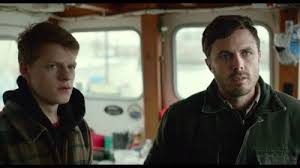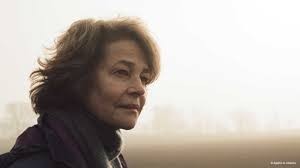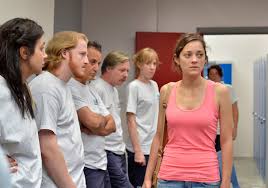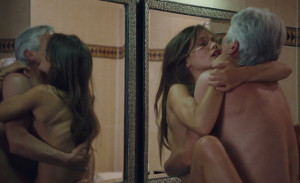YOU CAN’T GO HOME AGAIN: Movie Reviews of Manchester By The Sea, It’s Only the End of the World and The Commune by Howard Casner
Posted: November 29, 2016 | Author: Donald | Filed under: Uncategorized | Tags: C.J. Wilson, Casey Affleck, Gretchen Moll, It’s Only the End of the World, Jean-Luc Lagarce, Kenneth Lonergan, Kyle Chandler, Lea Seydoux, Lucas Hedges, Marion Cotillard, Matt Damon, Matthew Broderick, Michelle Williams, Nathalie Baye, The Commune, Thomas Vinterberg, Tobias Lindholm, Trine Dryholm, Ulrich Thomson, Vincent Cassel, Xavier Dolan | 16 Comments »For questions: hcasner@aol.com
First, a word from our sponsors: I am now offering a new service: so much emphasis has been given lately to the importance of the opening of your screenplay, I now offer coverage for the first twenty pages at the cost of $20.00. For those who don’t want to have full coverage on their screenplay at this time, but want to know how well their script is working with the opening pages, this is perfect for you. I’ll help you not lose the reader on page one.
Ever wonder what a reader for a contest or agency thinks when he reads your screenplay? Check out my new e-book published on Amazon: Rantings and Ravings of a Screenplay Reader, including my series of essays, What I Learned Reading for Contests This Year, and my film reviews of 2013. Only $2.99. http://ow.ly/xN31r
and check out my Script Consultation Services: http://ow.ly/HPxKE
Warning: SPOILERS
 You Can’t Go Home Again is, of course, the title of a posthumously published novel by Thomas Wolfe, and a phrase that has entered common discourse since. I’ve seen three movies lately that are about people returning home or using memories of their early years as the basis for their stories.
You Can’t Go Home Again is, of course, the title of a posthumously published novel by Thomas Wolfe, and a phrase that has entered common discourse since. I’ve seen three movies lately that are about people returning home or using memories of their early years as the basis for their stories.
The basic premise of writer/director Kenneth Lonergan’s new film Manchester by the Sea revolves around Lee Chandler (Casey Affleck), a janitor living in Boston who is very good at his job, but is a loner with a somewhat self-destructive personality. When he receives word that his older brother Joe (Kyle Chandler) has died, he returns to his home city of Manchester by the Sea, a fishing and tourist town. There he is shocked to discover that his brother in his will has requested Lee to become guardian to Joe’s sixteen year old son, Lucas. Joe has provided for Lucas’ expenses in his will and just needs Lee to return to Manchester to live.
Why Lee can’t return and the conflicts over how to handle this request make up the bulk of the movie and much of the heart breaking suspense is waiting to find out what happened that led to Lee’s present situation-you know it has something to do with his three children since they are only shown in flashback. The waiting is painfully unbearable at times. Read the rest of this entry »
THE GOOD, THE NOT SO BAD AND THE UGLY: AFI 2015, Part 4: Married Without Children – 45 Years and Macbeth
Posted: December 8, 2015 | Author: Donald | Filed under: Uncategorized | Tags: 45 Years, Andrew Haigh, Charlotte Rampling, David Constantine, David Thewlis, Justin Kurzel, Macbeth, Marion Cotillard, Michael Fassbender, Paddy Considine, Snowtown, Tom Courtenay, William Shakespeare | 31 Comments »First, a word from our sponsors: I am now offering a new service: so much emphasis has been given lately to the importance of the opening of your screenplay, I now offer coverage for the first twenty pages at the cost of $20.00. For those who don’t want to have full coverage on their screenplay at this time, but want to know how well their script is working with the opening pages, this is perfect for you. I’ll help you not lose the reader on page one.
Ever wonder what a reader for a contest or agency thinks when he reads your screenplay? Check out my new e-book published on Amazon: Rantings and Ravings of a Screenplay Reader, including my series of essays, What I Learned Reading for Contests This Year, and my film reviews of 2013. Only $2.99. http://ow.ly/xN31r
and check out my Script Consultation Services: http://ow.ly/HPxKE
Warning: SPOILERS
 Is this the year of the older, older woman?
Is this the year of the older, older woman?
For some reason, a number of films have been released this year with a central character that is probably not only not in any recognized quadrant of the four that studios so dream of capturing, it’s a target audience many producers probably consider non-existent: a female in her somewhat twilight years.
These include I’ll See You In My Dreams (Blythe Danner as a widow discovering that life isn’t over by any stretch of the imagination); Grandma (Lily Tomlin as a grandmother helping her granddaughter raise money for an abortion); Youth (Jane Fonda as an aging actress desperately trying to hold on to her career); The Woman in the Van (curmudgeon Maggie Smith as…a curmudgeon in a van).
And now we have Charlotte Rampling as Kate Mercer in 45 Years, a heartbreaking and at times emotionally devastating film about a wife who has to reevaluate her more than four decade long marriage in the days leading up to her and her husband’s anniversary.
It’s a roster that perhaps is worthy of an entry in the Guinness Books. Read the rest of this entry »
WORKING WOMEN: Movie reviews of Two Days One Night, The Clouds of Silas Maria and Gett: The Trial of Viviane Amsalem
Posted: November 14, 2014 | Author: Donald | Filed under: Uncategorized | Tags: Chloȅ Grace Moretz, Gett The Trial of Viviane Amsalem, Jean-Pierre Dardenne, Juliet Binoche, Kristen Stewart, Luc Dardenne, Marion Cotillard, Menashe Noy, Olivier Ossayas, Ronit Elkabetz, Sasson Gabai, Schlomi Elkabetz, Simon Abkarian, The Clouds of Silas Maria, Two Days One Night | 4 Comments »First, a word from our sponsors. Ever wonder what a reader for a contest or agency thinks when he reads your screenplay? Check out my new e-book published on Amazon: Rantings and Ravings of a Screenplay Reader, including my series of essays, What I Learned Reading for Contests This Year, and my film reviews of 2013. Only $2.99. http://ow.ly/xN31r
Warning: SPOILERS
 I have been attending the AFI film festival and have seen three films with female leads and have noticed a major difference between movies from other countries and those made in the U.S. when it comes to how we treat our actresses.
I have been attending the AFI film festival and have seen three films with female leads and have noticed a major difference between movies from other countries and those made in the U.S. when it comes to how we treat our actresses.
In the U.S., Marion Cottilard is made to play second fiddle to Johnny Depp, Daniel Day Lewis and Leonard DiCaprio, but on her home continent, two of the top European filmmakers actually built a whole movie around her.
In the U.S., Juliet Binoche is relegated to second tier status after a gigantic lizard goes on the rampage and Kristin Stewart is stuck in ridiculous teen angst films and even more ridiculous, over the top Hollywood blockbusters, but in Europe the two are allowed to play opposite each other in roles with depths most American actresses only dream of.
And in the U.S., when it comes to a study of a marriage, we have the misogynistic Gone Girl, with a psychotic wife who will do anything to punish her husband, even set him up for her own murder (while killing herself, no less), while from Israel, we have a film in which a woman desperately tries to get a divorce from a court that is almost determined to keep her in her place and not let her have it.
Prevailing wisdom is that this is one of the weakest years for actresses and the air is filled with panic as voters try to find five females to fill the slots for the Oscar noms for this year.
But prevailing wisdom always seems to leave out the pertinent proviso that this is really only true for the U.S.
Read the following reviews and weep at our inability to create worthy roles for half the population. Read the rest of this entry »
THE HALF YEAR OF THE WOMAN: Movie Reviews of Ida, Young & Beautiful and The Immigrant by Howard Casner
Posted: May 23, 2014 | Author: Donald | Filed under: Uncategorized | Tags: Agata Kulesza, Agata Trzebuchowska, Charlotte Rampling, François Ozon, Ida, James Gray, Jeremy Rinner, Joaquin Phoenix, Lukasz Zal, Marine Vetch, Marion Cotillard, Pawel Pawlikowski, Rebecca Lenkiewicz, Ric Menello, Ryszard Lenczewski, Young & Beautiful | 3,832 Comments » I am one of those annoying movie fanatics who tend to make year end lists. You know what I mean: the top ten movies of the year, the best acting, directing, writing, etc. And if that’s not bad enough, like most people who do this, I start building that list early on such that by June, say, I have some strong possibilities as to who might make it out of the Darwinian survival of the fittest mire and who might not.
I am one of those annoying movie fanatics who tend to make year end lists. You know what I mean: the top ten movies of the year, the best acting, directing, writing, etc. And if that’s not bad enough, like most people who do this, I start building that list early on such that by June, say, I have some strong possibilities as to who might make it out of the Darwinian survival of the fittest mire and who might not.
But there is something interesting happening this time round. While I already could easily have a top five or more list when it comes to female actors, I don’t have anyone I feel that strongly about for their male counterparts. So far this year, roles for women have been more interesting, more complex and more exciting than roles for men. Read the rest of this entry »
RUST AND BONE movie review by Howard Casner
Posted: January 12, 2013 | Author: Donald | Filed under: Uncategorized | Tags: Jacques Audiard, Marion Cotillard, Matthais Schoenarts, Rust and Bone, Thomas Bidegain | 3 Comments »Rust and Bone is a meet cute story about a double amputee who has a romance with a mixed martial arts fighter and they change each other (I know, I know, it sounds like a logline for a high concept film that any devotee of Save the Cat would be salivating over—but believe me, it’s far too original and fresh to be mentioned in the same sentence as that book, which I guess I’ve already done—shoot).
I suppose one might describe it as the distaff version of The Intouchables, the movie about the privileged white quadriplegic who hires a minority to help him and they change each other. But perhaps it would be better to compare it to The Sessions, the comedy about the guy in the iron lung who wants to lose his virginity so he hires a sex surrogate and they change each other (are you sensing a leit motif here?). That might be a slightly better fit because, whereas The Intouchables is safe, cuddly and as formulaic as a teddy bear (and proved that the French are just as able to create middle brow entertainment as the Americans–The Help, anyone?), The Sessions uses its edgy and dark humor to hide a bitterness and anger at the way God has set up the world which, believe me, is much closer to the style and attitude of Rust and Bone.
Rust and Bone is written by Jacques Audiard (who also directed) and Thomas Bidegain (Craig Davidson wrote the story). Both are rising stars in France. Audiard is also known for The Beat that My Heart Skipped (the far superior remake of James Toback’s Fingers) and The Prophet (about the rise of a young Arab man from fresh prison meat to the head of organized crime—a remarkable film also co-written by Bidegain). Bidegain most recently co-wrote the movie Our Children which has the same actors as in A Prophet.
The leads in Rust and Bone are Stephanie, played by Marion (La Vie en Rose) Cotillard, as a trainer at an aquarium who loses her legs after a platform collapses and sends her into a tank of killer whales, and Alain, Matthais (Bullhead) Schoenarts, as the fighter who tends to work on instinct without fully understanding how his actions affect other people (so animal instinct is he, that when Cotillard mentions that she is not sure she is able to be sexually responsive, Schoenarts casually asks if she wants to “fuck” to see; he’s not being flirtatious, he’s not being coy; he’s flat out asking in as practical and everyday manner as one could; I suppose one should be repulsed, but instead, one is more often won over by his attitude than not). Cotillard brings those Bette Davis/Jeanne Moreau eyes of hers to the proceedings and one can’t help but melt when you see them. Schoenarts brings the same bullheadness he brought to Bullhead. They have a quite palpable chemistry between them. Whatever else you may think of the film, you can’t deny the intensity of their scenes together.
The, it has to be admitted, somewhat manipulative plot is one of those that tends to constantly change directions and take off on odd forks in the road, yet is never unbelievable or dramatically unsatisfying. It makes sense in all its chutes and ladders configurations. The story is basically a converging of two popular fairy tales. On one hand, we have Beauty and the Beast with Stephanie as the beauty who tames Alain’s beast and helps him realize that he can care for others and doesn’t have to act on his bestial nature. The other is The Little Mermaid in which a woman gains her legs because of her love for a prince. I’m not sure that either one of them have quite been told the way they have here, but in the end, the story reaches an emotional depth that’s not easy to shake off.
What Audiard and Bidegain do here is bring a beauty to all the ugliness that is taking place. No matter how unpleasant the world of Stephanie and Alain gets, the filmmakers reveal that underneath it all there’s something more going on. This is a story about two people who have had awful things happen to them or even do awful things, but both have souls that defy the situation. This is a world that is a challenge to exist in, that is not often sympathetic to those who live in it, yet people can come together and create something more from it. It’s not always an easy film to watch, but it is a moving and rewarding one.
For more reviews, check out my blog at http://howardcasner.blogspot.com











